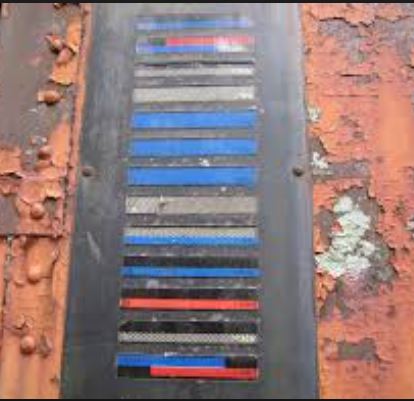An early use of one type of barcode in an industrial context
was sponsored by the Association of American Railroads in the late 1960s.
Developed by General Telephone and Electronics (GTE) and called KarTrak ACI
(Automatic Car Identification), this scheme involved placing colored stripes in
various combinations on steel plates which were affixed to the sides of
railroad rolling stock. Two plates were used per car, one on each side, with
the arrangement of the colored stripes representing things such as ownership,
type of equipment, and identification number. The plates were "read"
by a trackside scanner located, for instance, at the entrance to a
classification yard while the car was moving past. The project was abandoned
after about ten years because the system proved unreliable after long-term use
in the field.

During that time, the read rate was about 80%, which means that after seven years of service 10% of the labels had failed for reasons such as physical damage and dirt accumulation. The dirt accumulation was most evident on flatcars that had low-mounted labels.